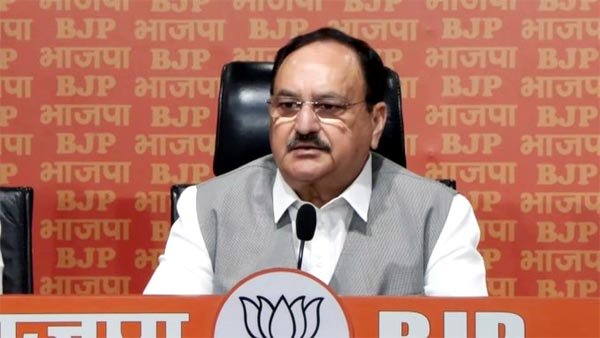New Delhi, Aug 18 (UNI) Bharatiya Janata Party (BJP) President and Union Minister J P Nadda today launched a scathing attack on India’s first Prime Minister, Jawaharlal Nehru, terming the 1960 Indus Waters Treaty with Pakistan as one of his “gravest historical blunders” and an act of “sacrificing national interest at the altar of personal idealism and ambition.”
In a series of posts on social media platform X, Nadda criticised the manner in which the Treaty was concluded, alleging that it was done without adequate Parliamentary consultation and that it permanently compromised India’s water security.
“Nehru not only sidelined Parliament but put India’s lifeline at risk, binding the nation’s hands for generations to come,” Nadda wrote.
The BJP credited Prime Minister Narendra Modi’s leadership for addressing what he described as a historic error. “Had it not been for the courageous and nation-first approach of PM Modi, India would still be paying the price for Nehru’s flawed idealism,” he said, referring to the recent decision by the Modi government to suspend the Treaty.
The BJP President alleged that the Treaty unilaterally gave away 80 percent of the Indus basin waters to Pakistan, leaving India with only 20 percent. “This jeopardised India’s long-term water interests and was done without even consulting Parliament,” he said.
Nadda noted that the Treaty was presented before Parliament two months after it was signed and only allotted two hours of discussion. He also criticised Nehru’s dismissive attitude towards concerns raised, quoting the former PM’s remarks likening the dispute to “a mere bucket of water.”
Highlighting internal dissent within the Congress at the time, Nadda referred to the criticism from the then-Congress MP Ashok Mehta, who called the Treaty akin to “second partition.” He also cited AC Guha’s condemnation of the payment of Rs 83 crore in sterling to Pakistan during a foreign exchange crisis, calling it “the height of folly.”
“Guha warned that bypassing Parliamentary oversight in such matters was symptomatic of authoritarian governance,” Nadda added.
The BJP leader also recalled the opposition of a young Atal Bihari Vajpayee, who had criticised the Treaty in Parliament, arguing that “genuine friendship cannot be built on a foundation of injustice.” He quoted Vajpayee as saying that if rejecting unreasonable demands from Pakistan strained ties, “so be it.”
“Atalji showed remarkable clarity in putting India’s national interest above all else, even in his early political years,” Nadda said.











